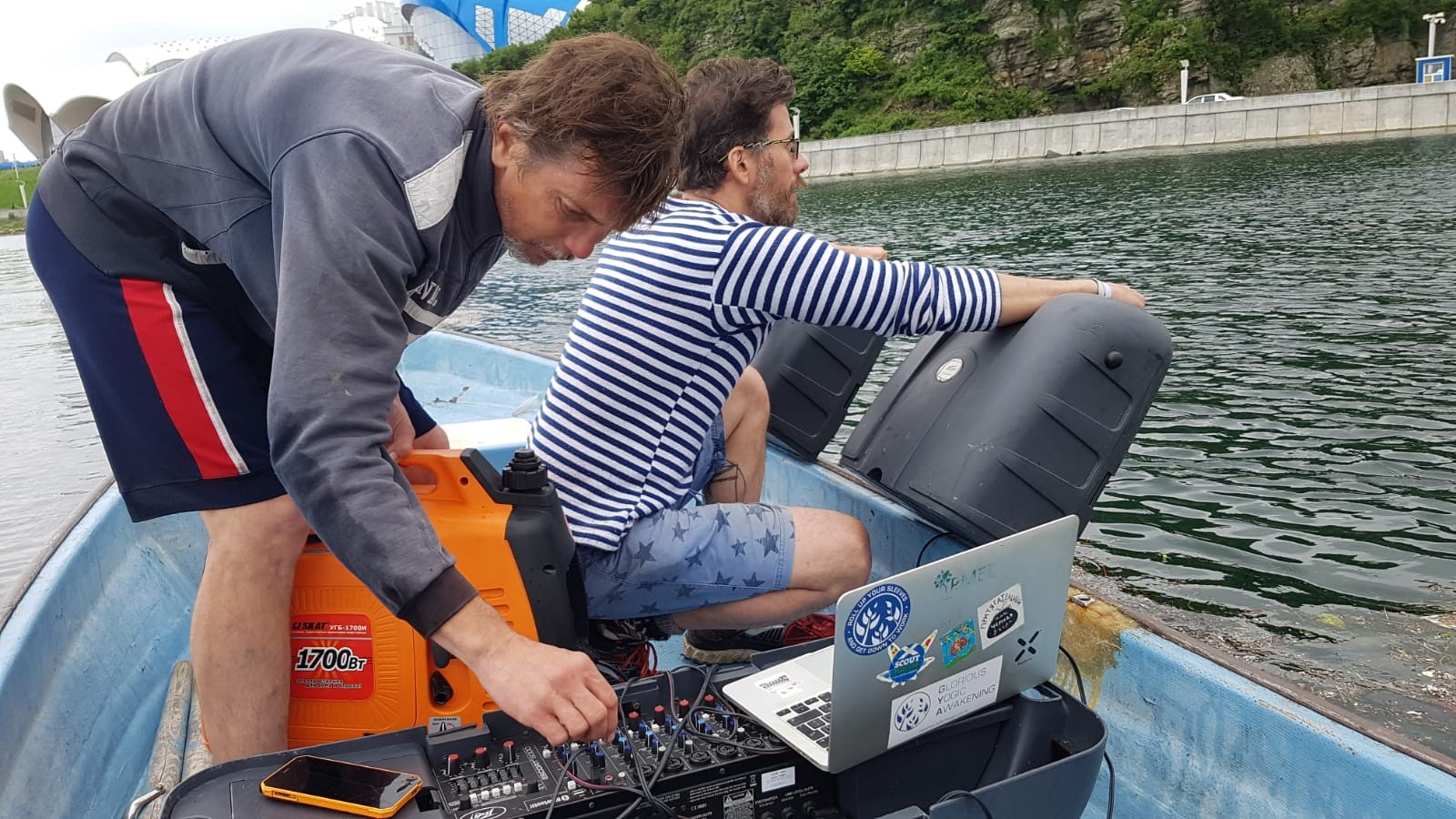Exactly 50 years after the original Woodstock festival was held in New York, the Science + Arts = Peace + Justice working group presented Vladiwoodstock, the first international and interspecies festival, based in Vladivostok, Russia.
Day 1 focussed on human connection and music by hosting teleconferences and mixed style jams with electronic and live instruments, as well as the recorded voices of marine mammals. This day’s gathering took place in Artyom, Russia, and was connected via internet to Edinburgh, Hawaii, Lisbon, and St. Petersburg.
Day 2 featured the launch of Dolphinet on Russky island. Dolphinet is an experiment into marine mammals’ communication as part of a collaboration with researchers of the Far Eastern Branch of the Russian Academy of Sciences institute of Marine Biology and Primorsky Oceanarium.
The experiment was run by Dolphinet coordinator Nicola Swietkowiak and Science + Arts = Peace + Justice member Sasha Kagnsky (Russia; Far Eastern Federal University, Vladivostok, Russia), who were accompanied by a free diver Dmitrii Ykimchuk and a helped by Oleg Shershnev and Artur Mays. The group took a boat equipped with a power generator and loud speakers to the research part of the oceanarium bay, where seals and beluga whales could hear the sounds, whose reactions were recorded using hydrophones by Dmitrii Naumov.
Three sets of one-minute transmissions were presented through the air and into water: voices of spinner dolphins, then of humpback whales, and finally of orcas (killer whales), which are natural predators that hunt both beluga whales and seals. The sounds of dolphins, whales, and orcas were recorded in Hawaii.
The free diver was able to hear sounds as deep as 7 meters below the surface, and as far as captive belugas and seals were located compared to the boat. The experiment showed that both belugas and seals were prominently alarmed when orca sounds were played, mostly the first time, then less and less during two succeeding transmissions as the animals realised that the danger was a false alarm.
The Dolphinet team was strengthened by prominent ecologist Michael Bailey, who came to support the event. Inessa Duizen, a member of the Russian Academy of Sciences leading hydroacoustics research in the oceanarium, hopes that this experiment will stimulate further research, and lead not only to fundamental insights to marine mammals communication, but also bring practical outcomes – e.g. the ability to scare seals with recorded orca sounds could greatly enhance fishing outcomes.
Further plans for Dolphinet include transmitting and receiving signals in real time underwater via the internet, meaning it will function as sort of telephone for marine mammals. Our hope is that the devices under construction will be capable of transmitting the wide range of frequencies that are characteristic for marine mammals.
This will afford the collection of big data sets, e.g. records of communication between dolphins, which then can be de-coded using machine learning. In the past such algorithms were built for the purposes of decoding extra-terrestrial signals in hopes of alien contact. The Dolphinet team has an agreement with an anonymous team of such researchers, who will use AI decoding software for beta-testing on dolphin communication datasets.
Who knows? We may be only a couple of years away from deciphering the first non-human language, which should open wide areas of new knowledge.
More information on the International Dolphin Enrichment Association (IDEA) is available here.
